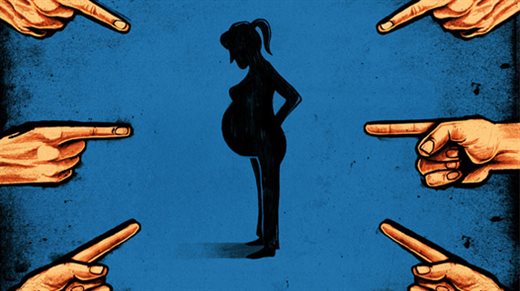A-EQUIP and new RCM I-learn module
At the end of March, England waved goodbye to statutory supervision of midwives and started on the transition to the A-EQUIP model (arrangements differ slightly in Scotland, Wales and NI). The model brings new emphasis on all midwives being responsible for reflecting on their own practice, quality improvement and planning personalised care for women. Professional Midwifery Advocates (PMAs) will support midwives to develop the skills needed.
Birthrights is keen to ensure that healthcare professionals are aware of their obligations to listen to women and do their best to facilitate their decisions under A-EQUIP. We were pleased to be able to contribute to the new guidance published by NHS England on the model and are proud that the guidance now has a strong emphasis on supporting autonomy, firmly grounded in the human rights legal framework. You can read the guidance in full
here.
Birthrights and the Royal College of Midwives have just launched a
new online learning module on human rights and advocating for women for that has been designed to make an important contribution to helping midwives prepare for this role.
 Birthrights training
Birthrights training
2017 looks to be our busiest year yet with a significant increase in our human rights training opportunities for healthcare professionals. A number of Trusts have contracted with us to deliver our "Creating a Safe Maternity Culture course" using the funding they have received from the Maternity Safety Training Fund. In addition, we are running a number of our half day and full day Human Rights in Maternity Courses to empower all healthcare professionals to advocate for women. If you would like to know more about the training we offer or book some for your Trust, please contact us at info@birthrights.org.uk
Videos now available
We now have four videos on our website exploring common human rights issues in maternity care: What is consent? Bullied into Treatment, Choice of Place of Birth and Elective Caesarean. Do take a look, share with your colleagues and on social media!

IMUK starts legal challenge
IMUK have announced that on the 17th March they started legal proceedings against the Nursing and Midwifery Council following a decision in December which has prevented many independent midwives from caring for the women relying on them. Our Chief Executive, Rebecca Schiller responded in a Birthrights press release:
"As I made clear in my January letter to its chief executive Jackie Smith, we do not believe that the actions of the NMC have been those of a responsible regulator. There have already been very damaging consequences of this incorrect decision. The NMC has jeopardised the safety of hundreds of women and babies by effectively severing each woman’s access to continuity in her midwifery care. Faced with the absence of any comparable NHS service in their area, or following previous traumatic experiences with local maternity services, I know of a number of women who now believe that their only choice is to give birth without any medical assistance."
Forced caesareans and the Court of Protection
On 8th March, Birthrights marked International Women's Day by holding a very well attended seminar on the subject of forced caesarean cases in the Court of Protection. The diverse and distinguished panel of women with lived experience, lawyers, doctors and midwives, ably chaired by Mrs Justice Parker, entered into a lively debate with the audience, about why these cases went to a Court in the first place, whether judges heard a balanced set of viewpoints when they did and what evidence there was about the long term impact on women. Birthrights is intending to produce a set of recommendations very shortly.
Policing Pregnancy - 18th May 2017

Following the success of the Policing Pregnancy conference last April, Birthrights in collaboration with the British Pregnancy Advisory Service (BPAS), the Centre for Parenting Culture Studies (CPCS), and Engaging Sociology at CCCU, will be hosting the 2nd Policing Pregnancy conference on the 18th May at Canterbury Christ Church University.
The full programme and details of how to book tickets can be found here